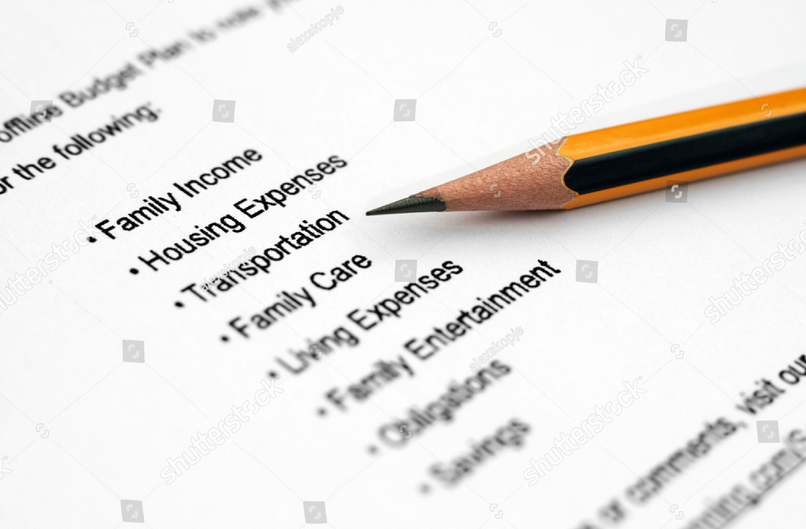If you are working towards gaining more control over your expenditure and planning your financial goals, you need an effective personal budget. A budget is a summary of expected income and expenses in a given period. It’s a planning tool that allows you to plan on how to spend and save your earnings and keep track of your spending patterns.
Though budgeting may not sound like a very exciting activity it is of great significance in keeping your financial house in order. Here’s how to make a simple budget;
How to Make an Effective Personal Budget in 7 Simple Steps
- Know How Much Money You Make
Making an effective personal budget begins with knowing how much income is at hand and available for expenses. If your income is from regular employment where taxes and social welfare deductions are automatically made then use the net income as your available income. Be sure to record other incomes outside your employment income such as business income.
- Track Your Expenses
List down all the expenses you plan to incur during the budget period. This should include essentially everything you spend your income on- rent, loan payments, insurance, groceries, savings.
- Categorize Your Expenses
Break down your listed expenses into either fixed or variable. Fixed expenses remain relatively constant each month and are generally a required part of your way of living. These include expenses such as rent, insurance payments. Variable expenses vary from month to month, such as expenditure on groceries, entertainment, to name a few. This category will be important when making adjustments to come up with an effective personal budget.
- Sum Up Your Monthly Income And Monthly Expenses
Add up all your income and expenses and get the difference. If your income surpasses your expenses, you are off to a good start. You can use the extra income in other areas of your budget such as savings or clearing more loans.

If your expenses are more than your income, then you need to make adjustments in your budget.
- Make Adjustments In Your Expenses
When accurately identified expenses and income in an effective personal budget should be equal. This means that the all your income has been accounted for and budgeted for a specific expenditure or savings. If the situation in your budget is such that expenses are higher than the income, you should cut on the expenditure to bring them to an equal balance with your income. This should be done by cutting down on the variable expenses. Since these expenses are in most cases non-essential, it should be easy to cut on a few areas to bring your expenses closer to your income.
- Plan For Savings
An effective personal budget means takes care of your future financial welfare by giving great importance to your savings. The proper policy requires you to save 10%-15% of your income. Plan for your savings and avoid saving the residue after spending. Remember to set aside some funds for emergency expenses such as medical expenses. If possible have some funds that can sustain you for at least three months without an income set aside as an emergency fund.
- Review Your Budget Regularly
It’s important to review your budget regularly to make sure you stay on track in your planning. After the first month, compare your actual expenses against what you had laid out in your budget. This will help you identify areas where you stayed on budget and those that you need to improve on. You can divide your budget into weekly budgets for easier tracking and monitoring.
Conclusion
Using a budget may not be a fancy thing but it’s a smart way to design your financial life. Remember an effective personal budget must have an outline of your income, expenses and a savings plan. Be realistic when preparing your budget. Use actual figures as opposed to estimates as this will give you a more practical budget.
With proper budgeting you are sure to have a today free of debts and financial constraints and a secure planned future.

